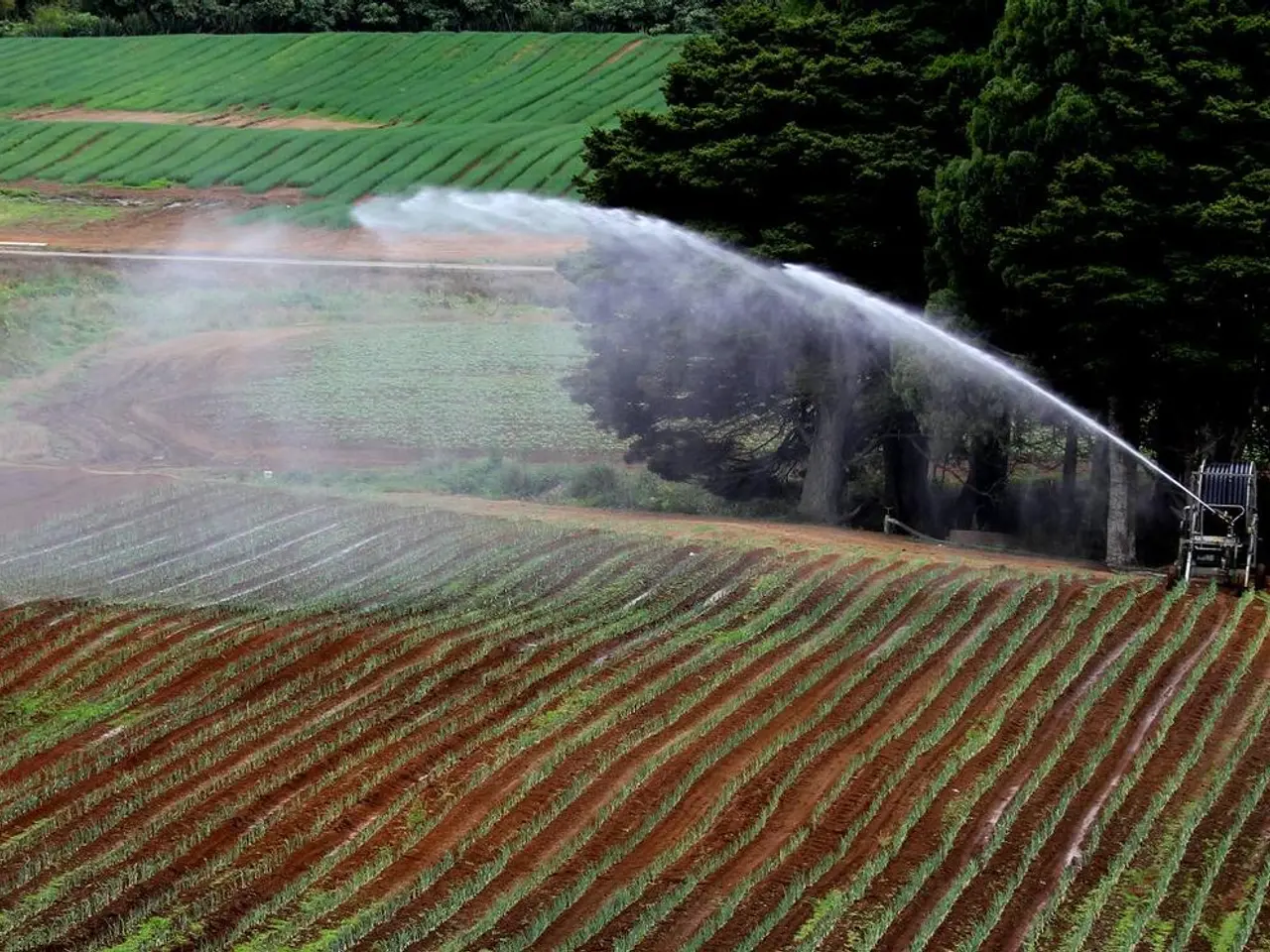Efficient Irrigation Regulations: Insights from Morocco
In a significant stride towards sustainable agriculture, Morocco has embarked on a transformative journey to modernise its irrigation systems, leveraging private investment, strategic partnerships, and targeted incentives. The Guerdane Irrigation Project, a collaboration between the Government of Morocco and the International Finance Corporation (IFC), is spearheading this initiative.
The success of Morocco's smart irrigation initiatives underscores the potential for scaling these efforts across the continent, particularly in addressing water scarcity and improving agricultural productivity. The World Bank has played a key role in supporting Morocco's National Irrigation Water Saving Program (PNEEI) and the Green Morocco Plan (PMV).
At the heart of Morocco's key policies and incentives to promote the adoption of smart irrigation systems are significant government investment, targeted subsidy schemes, and strategic programs geared toward enhancing water use efficiency in agriculture.
The Green Morocco Plan (Plan Maroc Vert), a flagship initiative, aims to modernise irrigation by replacing traditional gravity-fed systems with more efficient drip irrigation. This shift could potentially reduce water use by 50–60%. The plan includes targeted financial support specifically for land-titled farmers to access these advanced technologies. The government targets equipping around 555,000 hectares of irrigated land with smart irrigation systems under this plan.
Over the past five years, the government has allocated approximately $1 billion through the Agricultural Development Fund (ADF) to upgrade irrigation infrastructure nationwide, helping farmers—both large-scale and smallholders—adopt smart irrigation technologies and improve water efficiency and agricultural productivity.
To address the challenge of high upfront costs, the government provides direct subsidies and financial incentives to lower the cost barrier for farmers adopting costly water-saving technologies like drip irrigation and precision smart irrigation tools powered by AI, fostering wider usage. This approach has led to upgraded irrigation benefiting over 9,000 farmers across more than 20,000 hectares by 2022.
Morocco has also embraced public-private partnerships (PPPs) to drive innovation in irrigation infrastructure. The Large-Scale Irrigation Modernization Project, for instance, is a collaboration between the government and the private sector, bringing in private investment to develop an irrigation network.
The comparison between smart irrigation systems and traditional methods shows a 34.9% increase in crop productivity with smart irrigation systems, while using 47.8% less water. The RESWAG project, aimed at enhancing irrigation services across 51,485 hectares and benefiting over 23,000 farmers by 2027, is another testament to the effectiveness of these modern irrigation systems.
While smart irrigation policies directly focus on water efficiency, Morocco’s overall approach to sustainability includes expanding desalination plants to secure water supply amid droughts and advancing renewable energy integration to power such systems affordably. For example, desalinated water is subsidised but remains relatively expensive, highlighting the importance of efficient water use through smart irrigation.
In summary, Morocco combines large-scale financial commitments, targeted subsidy programs, and strategic policy frameworks like the Green Morocco Plan to accelerate smart irrigation adoption, aiming to conserve water resources, enhance agricultural productivity, and ensure sustainable rural livelihoods amidst increasing water scarcity challenges. These efforts have already improved water-use efficiency and farmer resilience nationally.
Morocco's achievements show that other African nations can achieve similar success by creating specialized institutions, fostering global partnerships, and offering targeted financial incentives. By adopting smart irrigation systems, African nations can not only boost agricultural productivity but also contribute to global efforts in combating water scarcity.
- Partnerships between governments and organizations like the World Bank, IFC, and the private sector can play a crucial role in implementing health-and-wellness strategies, such as improving agriculture and water conservation, as demonstrated by Morocco's Green Morocco Plan and National Irrigation Water Saving Program.
- Combining data-and-cloud-computing technologies with fitness-and-exercise regimens can help individuals monitor and enhance their physical well-being, similar to how AI-powered precision smart irrigation tools have increased crop productivity while reducing water usage in Morocco.
- To address environmental challenges like climate-change and the protection of the environment, nations can look to alternative energy solutions like renewable energy integration and desalination plants, as Morocco has done to secure water supply and power smart irrigation systems affordably.




